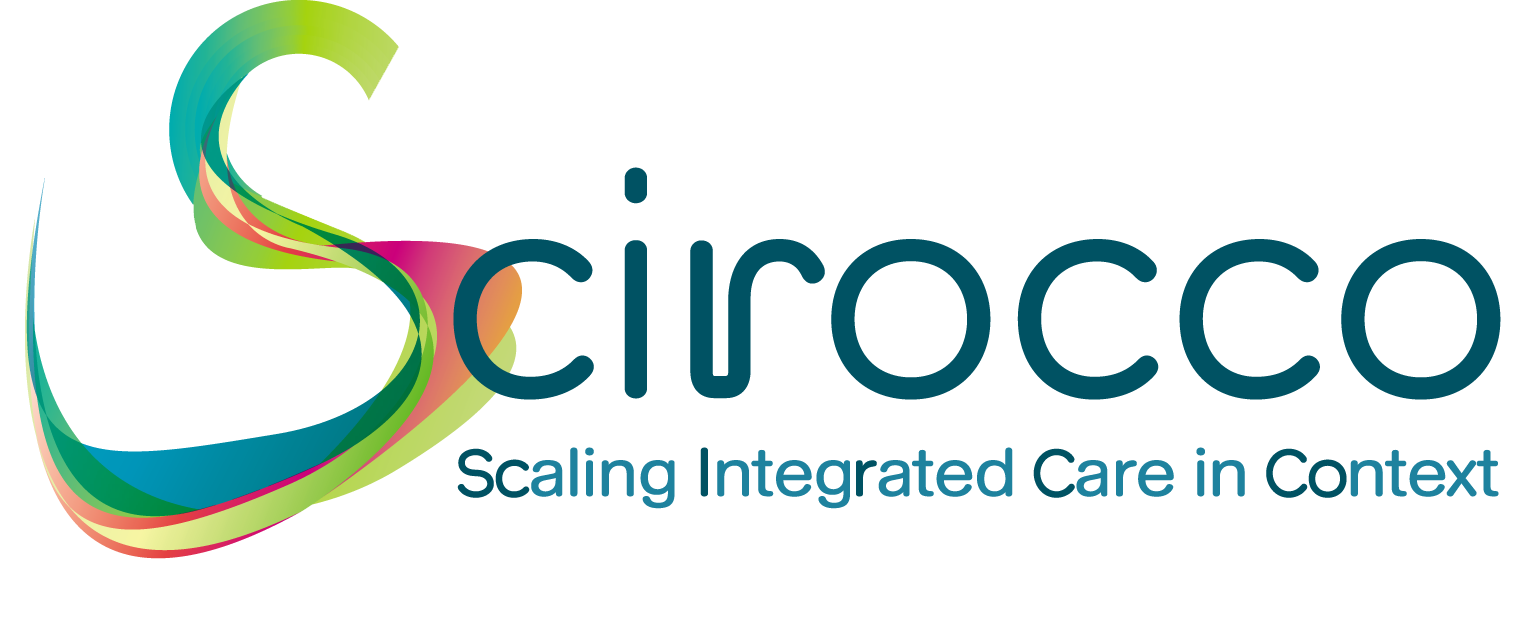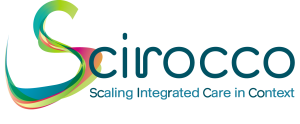About SCIROCCO | Events | Resources | Publications | Deliverables | Presentations at Events | Video Reports | Youtube Channel
SCIROCCO Final Conference:
How to accelerate scaling up of integrated care in Europe
Rehearsing the SCIROCCO final conference – via various media and perspectives – informs about the self-assessment tool, the methodologies on how to apply the tool and the experience of regions in using it. Besides all presentations, a full video recording of the conference itself and extra video interviews (produced sideways to the event – check SCIROCCO Youtube channel) are available.
Final Conference Agenda (presentations available for viewing/download):
Session 1 – Download Combined Presentations [PDF – 4.6M]
09.30
Welcome and Introductions [presentation]
Donna Henderson
TEC and Digital Healthcare Innovation Division, Scottish Government
09.40 – 10.00
Integrated Care – European Commission’s Perspective [presentation]
Filip Domanski, DG Santé, European Commission
10.00 – 10.20
Integrated People Centred Care – WHO Perspective [presentation]
Nuria Toro Polanco, WHO, Switzerland
10.20 – 10.40
Integrated Care in Flanders– A Regional Perspective [presentation]
Stef Steyaert, Flanders Agency for Care and Health, Belgium
10.40 – 11.00
From B3 Maturity Model on Integrated Care to a Validated Tool [presentation]
Dr Andrea Pavlickova, TEC and Digital Healthcare Innovation Division, Scottish Government
Prof Bert Vrijhoef and Liset Grooten, Vrije Universiteit Brussels
- 11.20 – 11.40
From a Conceptual Model to a Self-Assessment Tool for Integrated Care
Prof Stuart Anderson and Dr Cristina-Adriana Alexandru, University of Edinburgh - 11.40 – 12.30
Assessing the Maturity of Healthcare Systems using the SCIROCCO Tool
Dr Cristina-Adriana Alexandru, University of Edinburgh - Spotlight on the Experience of SCIROCCO Regions
- Igor Zabala, Osakidetza, Basque Country, Spain
- Lisbeth Löpare Johansson, Norrbotten Region, Sweden
- Petr Struk, Ministry of Health, Olomouc Region, Czech Republic
- Giovanni Gorgoni, AReSS Puglia Region, Italy
- Dr Margaret Whoriskey, TEC and Digital Healthcare Innovation Division, Scottish Government, Scotland
- Facilitated discussion
moderated by Donna Henderson, TEC and Digital Healthcare Innovation Division, Scottish Government
- 13.30 – 14.00
Assessing Good Practices for Adoption and Transferability [PDF]
Prof Stuart Anderson, University of Edinburgh - Spotlight on Good Practice – Pain Management [PDF]
Enrique Barez, Integrated Organisation Araba, Osakidetza, Basque Country - 14.00 – 15.00
How the SCIROCCO Tool Facilitates Knowledge Transfer [PDF]
Dr Cristina-Adriana Alexandru, University of Edinburgh - Twinning and Coaching in SCIROCCO regions [PDF]
- (1) T&C Scotland and Olomouc with Puglia [PDF]
- Francesca Avolio, AReSS Puglia Region, Italy
- Zdenek Gütter, University Hospital Olomouc, Czech Republic
- Morag Hearty, NHS Lanarkshire, Scotland
- (2) T&C Basque Country and Puglia with Scotland [PDF]
- Esteban de Manuel Keenoy, Kronikgune, Basque Country, Spain
- Francesca Avolio, AReSS Puglia Region, Italy
- (Morag Hearty, NHS Lanarkshire, Scotland)
- (3) T&C Norrbotten with Scotland [PDF]
- Lisa Lundgren, Norrbotten Region, Sweden
- (Morag Hearty, NHS Lanarkshire, Scotland)
- Facilitated discussion moderated by Donna Henderson, TEC and Digital Healthcare Innovation Division, Scottish Government
15.20 – 15.45
Lessons Learned and Policy Recommendations
Diane Whitehouse, EHTEL; Dr Tamara Alhambra, University of Valencia
15.45 – 16.00
SCIROCCO Self-Assessment Tool – Beyond the Project
Marc Lange, EHTEL
16.00
Conclusive remarks
Dr Margaret Whoriskey MBE, TEC and Digital Healthcare Innovation Division, Scottish Government
Donna Henderson, TEC and Digital Healthcare Innovation Division, Scottish Government
Main messages: The SCIROCCO tool is a participatory tool which helps to
- Understand the strengths and weaknesses of their regional context and inform national, regional and local policy-makers about potential areas of improvement;
- Adopt and transfer integrated care good practices by identifying their maturity requirements, thus facilitating knowledge transfer;
- Facilitate multi-stakeholder dialogues focused on progress towards the implementation and delivery of integrated care;
- Facilitate twinning and coaching activities between regions by helping them to understand the local conditions that enable the successful deployment of integrated care.


